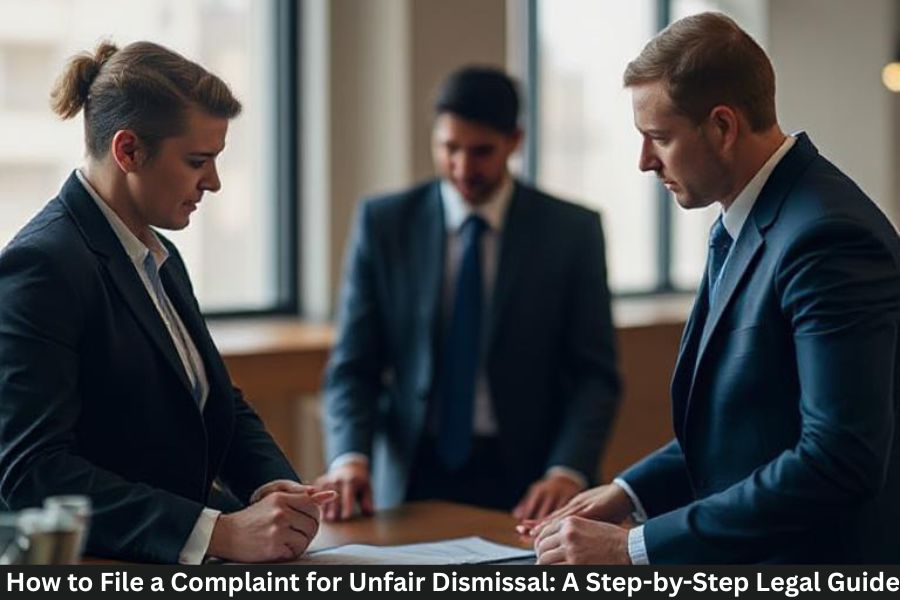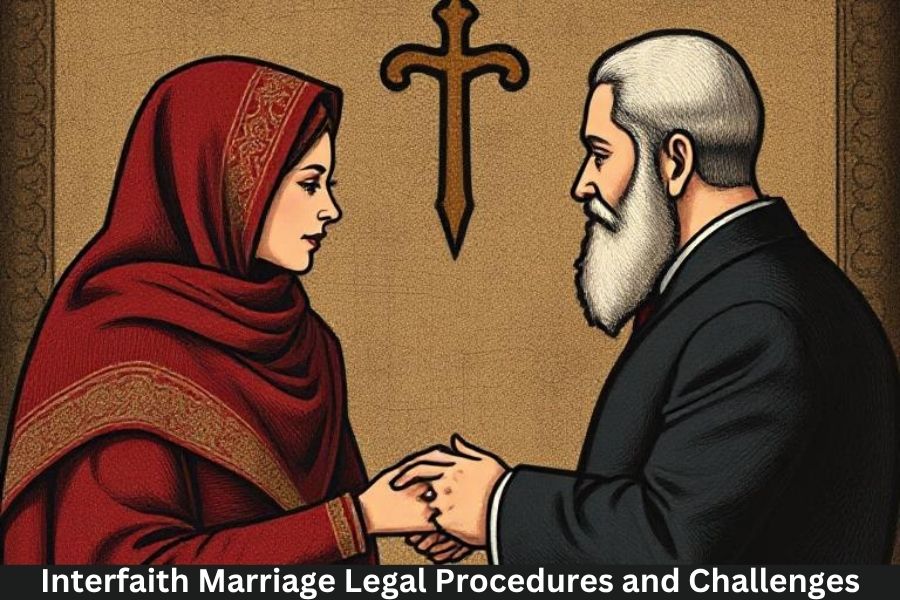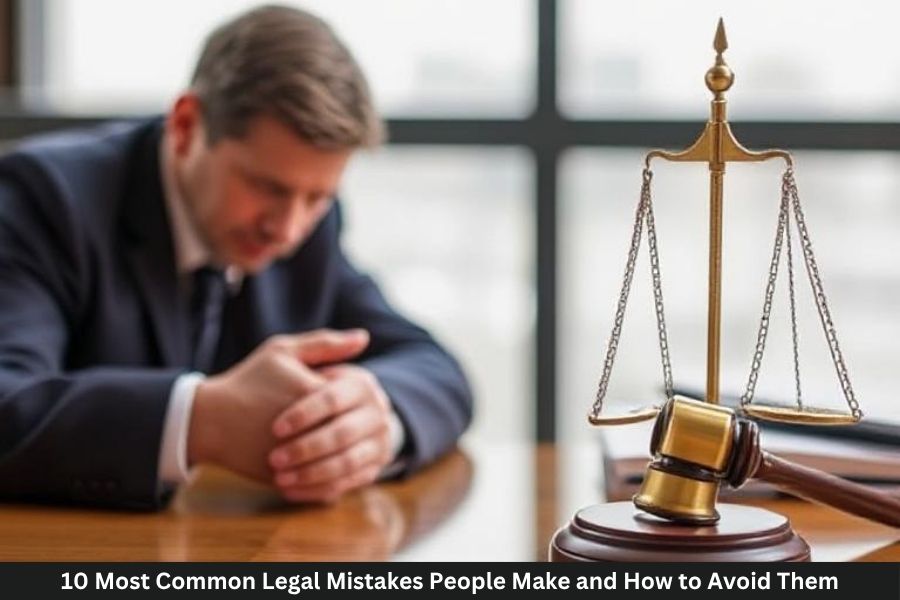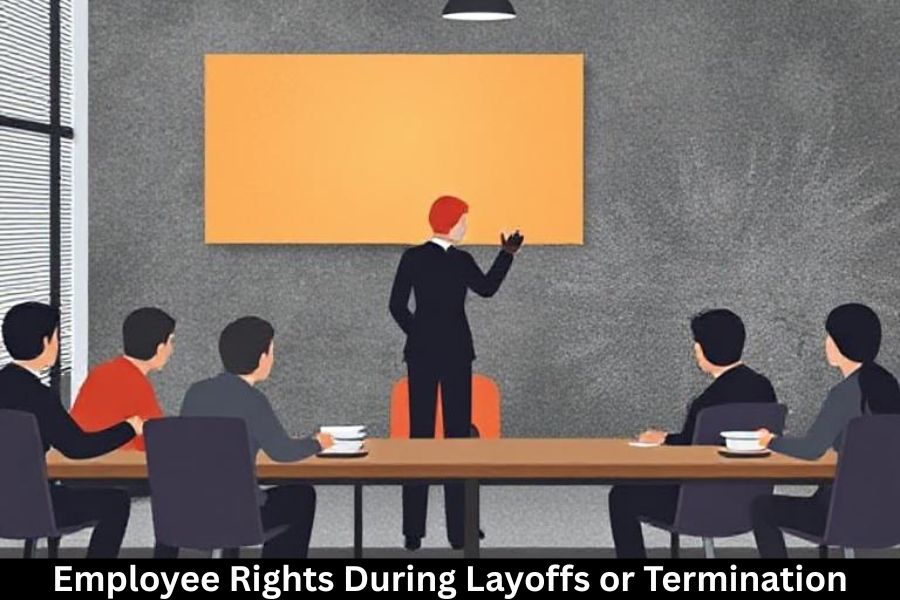Being fired from a job is difficult—but being fired unfairly is both emotional and legally challenging. If you believe your employer dismissed you without valid reason or proper procedure, you have the right to take legal action. This guide explains how to file a complaint for unfair dismissal, helping you understand your rights, gather evidence, and navigate the legal process confidently.
What Is Unfair Dismissal?
Legal Definition of Unfair Dismissal
Unfair dismissal occurs when an employee is terminated without just cause or due process, violating employment laws or contractual terms. It usually happens when an employer acts arbitrarily, retaliates, or fails to follow legal procedures.
Difference Between Unfair and Wrongful Termination
While both terms are often used interchangeably, they differ legally:
- Unfair dismissal focuses on the lack of fairness or proper reason.
- Wrongful termination refers to a breach of employment contract or legal rights.
Understanding Employee Rights
Who Is Protected Under Employment Law
Most full-time, part-time, and contract employees are protected under national labor laws. However, certain categories—like probationary or casual workers—may have limited rights depending on jurisdiction.
Common Grounds for Unfair Dismissal
- Discrimination (based on gender, race, religion, or disability)
- Retaliation for whistleblowing or filing a complaint
- Dismissal without warning or valid reason
- Termination due to pregnancy, age, or union membership
Examples of Unfair Dismissal
Termination Without Just Cause
Being fired without valid reasoning or warning, especially if your performance record is clean, is considered unfair.
Retaliation or Discrimination
If your employer fires you for reporting illegal practices, requesting sick leave, or demanding fair wages, that’s retaliation—clearly unlawful.
Constructive Dismissal
When an employer makes working conditions unbearable, forcing you to resign, the law may view it as constructive dismissal, equivalent to being unfairly fired.
Legal Framework for Unfair Dismissal
National Labor and Employment Acts
Every country has specific labor codes that outline fair dismissal practices. For example, the Employment Rights Act (UK) and Fair Labor Standards Act (US) govern termination laws, ensuring employees aren’t dismissed unjustly.
Role of Labor Tribunals and Courts
Labor tribunals or commissions investigate complaints, mediate disputes, and issue binding decisions. They ensure both employers and employees adhere to labor laws.
How to Prepare Before Filing a Complaint
Gather Evidence and Documentation
Collect all relevant materials, including:
- Termination letters
- Employment contracts
- Emails or written communications
- Witness statements
- Performance records
Review Your Employment Contract
Check for clauses related to termination, notice periods, and disciplinary procedures. Your employer must comply with these terms.
Consult a Labor Lawyer
An employment attorney can review your case, assess your chances, and guide you through filing procedures to ensure compliance.
Step-by-Step Guide to Filing an Unfair Dismissal Complaint
Step 1: Identify the Appropriate Authority
In most countries, complaints are filed with:
- A Labor Board
- An Employment Tribunal
- A Human Rights Commission, depending on the nature of dismissal
Step 2: Submit a Written Complaint
You must submit a detailed written complaint stating:
- The reason you believe your dismissal was unfair
- Supporting evidence
- Desired outcome (e.g., reinstatement or compensation)
Step 3: Participate in Mediation or Investigation
Authorities may offer conciliation or mediation to resolve disputes amicably before proceeding to court.
Step 4: Attend the Hearing or Tribunal
Both you and your employer will present your sides. Be factual, calm, and organized when explaining your case.
Step 5: Receive the Verdict and Remedies
After evaluating evidence, the tribunal will decide. If the dismissal is deemed unfair, remedies like reinstatement or compensation will be ordered.
Filing Deadlines and Time Limits
Timing is critical. Most jurisdictions require employees to file within 30 to 90 days of dismissal. Missing this window could make your case ineligible for review.
What Happens After You File a Complaint
Employer Response and Review Process
Your employer will receive notice and may respond with a defense. The tribunal will then evaluate both sides, calling witnesses if necessary.
Possible Outcomes of the Case
- Reinstatement to your former position
- Financial compensation for lost wages
- Settlement agreements through mediation
- In rare cases, punitive damages for misconduct
Available Remedies for Unfair Dismissal
Reinstatement
You may be legally reinstated to your job if both parties agree and the court finds the dismissal baseless.
Compensation and Back Pay
Courts can order payment for lost income, unpaid benefits, and emotional distress caused by the termination.
Legal Costs and Damages
In some cases, employers are required to cover legal costs and additional damages if they acted maliciously.
Tips for Strengthening Your Case
- Maintain professionalism in all communications.
- Keep copies of all documents related to employment and dismissal.
- Avoid defaming your employer online or in public.
- Seek witness testimony if possible.
When to Seek Legal Assistance
Hire a labor lawyer if:
- Your employer has a legal team.
- The case involves complex discrimination claims.
- Your dismissal involves breach of contract or retaliation.
Common Mistakes Employees Make
- Missing the filing deadline
- Lacking written evidence
- Signing severance agreements without legal advice
- Assuming oral promises hold legal weight
Avoid these errors to improve your chances of winning.
Preventing Future Employment Disputes
- Request clear employment contracts from the start.
- Document all communications regarding performance or disciplinary issues.
- Understand company policies on termination and grievance redressal.
Conclusion
Unfair dismissal doesn’t just cost you a job—it can impact your livelihood and emotional well-being. Thankfully, employment laws exist to protect you. By learning how to file a complaint for unfair dismissal, gathering evidence, and seeking expert legal advice, you can assert your rights and achieve a fair resolution. Remember—standing up for yourself isn’t just about justice; it’s about safeguarding dignity and equality in the workplace.
FAQs
1. What qualifies as unfair dismissal?
It includes being fired without valid reason, due to discrimination, or without following due process.
2. How long do I have to file an unfair dismissal complaint?
Most regions allow 30 to 90 days from the date of termination.
3. Can I file a complaint without a lawyer?
Yes, but hiring a labor attorney increases your chances of success.
4. What compensation can I receive for unfair dismissal?
You may be entitled to reinstatement, back pay, or financial damages.
5. Can I be fired again after winning an unfair dismissal case?
Employers are legally prohibited from retaliating against reinstated employees.



